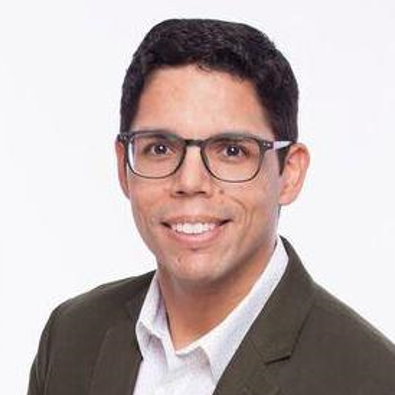
Affiliation:
Kennesaw State University, USA
Short bio:
Israel Sánchez-Cardona is an associate professor of psychology and the Associate Director of the Center for the Advancement of Military and Emergency Services (AMES) Research at Kennesaw State University (Georgia, USA). He completed Ph.D.’s in psychology from the University of Puerto Rico (Río Piedras Campus) and in work and organizational psychology at the Universitat Jaume I (Spain). His research focuses on occupational health psychology and workers’ health and well-being. In his professional work, Dr. Sánchez-Cardona explores how job and personal resources (e.g., psychological capital, meaning, strength use, work engagement, and resilience) impact workers’ mental health and well-being. He has over 50 peer-reviewed publications and 140 professional presentations in national and international forums. He is an associate editor of the Journal of Managerial Psychology and has been an associate editor of the Revista Puertorriqueña de Psicología (2015-2020). Currently, he serves as Treasurer of the Interamerican Society of Psychology Board of Directors. In recognition of his contributions, Dr. Sánchez-Cardona received the Mentor of the Year award from the Puerto Rico Psychological Association in 2019. Before joining KSU, Dr. Sánchez-Cardona worked as an associate professor at the Ph.D. Clinical Psychology Program at Albizu University (San Juan, Puerto Rico), assistant professor at the I/O psychology graduate program at the University of Puerto Rico, Río Piedras Campus, and as a post-doctoral research fellow at Universitat Jaume I (Spain).
Title:
Nurturing a Healthy Workforce: Effective Strategies for Enhancing Employee Well-being
Abstract:
Workplace stress and poor mental health have increased in the past years. Recent statistics show that 77% of workers experience work-related stress regularly, which is associated with emotional exhaustion, lack of motivation, low self-efficacy, desire to quit, family issues, and physical health, among others. Excessive stress and lack of well-being cause negative consequences for the individual (health outcomes), their families (work-family conflict), and the organizations (turnover). Some populations and occupational groups present unique job demands that require targeted interventions to address their potential health consequences. Similarly, work, as a determinant of health, requires a multilevel approach to identify relevant strategies to create healthier organizations and communities. Workplaces play a crucial role in promoting health and well-being. In this presentation, we summarize the findings of research conducted in different contexts (Caribbean, North America, and Europe) and with diverse occupational groups (child welfare workforce, educators, nursing staff, first responders) to understand the unique job demands, job resources and the individual differences that affect health and well-being. Based on some of these results, we present and delineate the approaches we have used to assess, design, and implement programs and practices in different organizations to promote personal resources, self-regulation strategies, and leadership skills in public agencies. We present three projects in which targeted approaches for assessing, designing, and implementing strategies have been created using a collaborative approach between interdisciplinary academic teams and subject matter experts. We will discuss best practices to engage organizations in building and sustaining these programs to contribute to the ongoing support of the workforce’s health and well-being. Finally, we will reflect on the need to continue understanding unique psychosocial factors affecting health and well-being in diverse occupational groups globally and in specific geographical areas.
